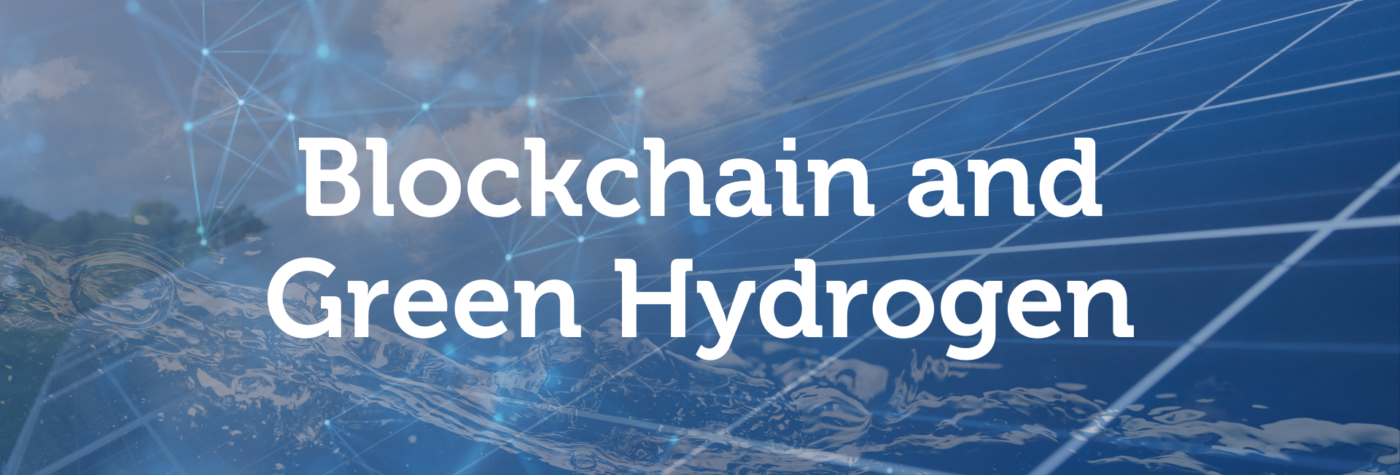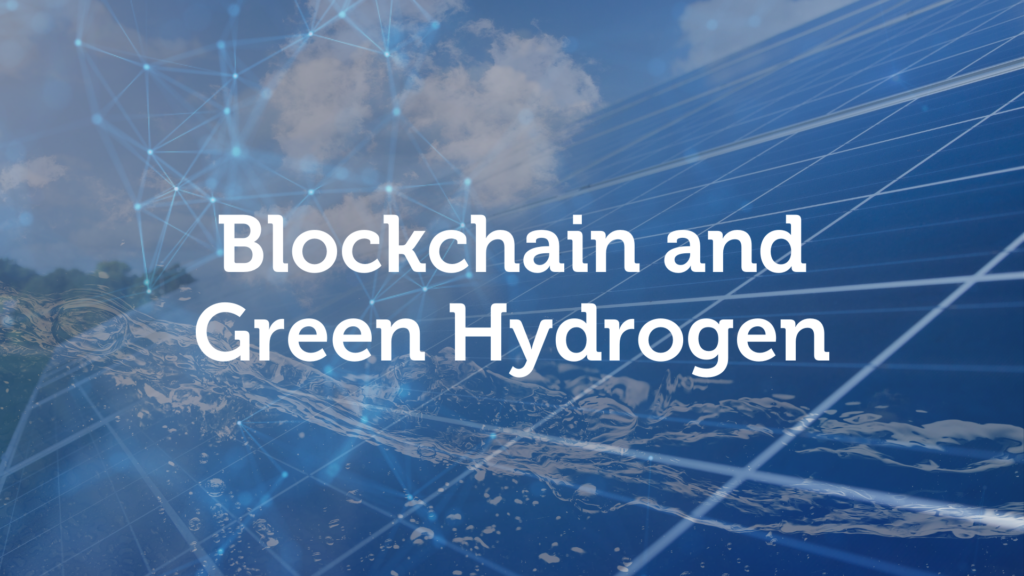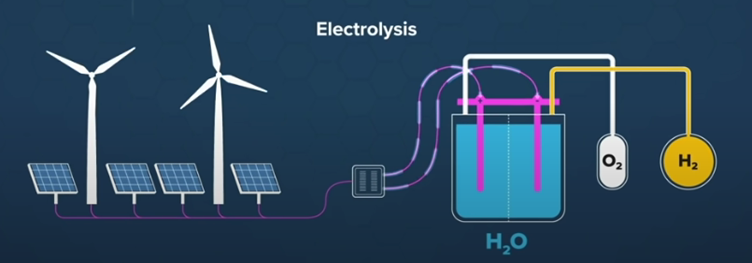How can Blockchain reduce CO2 emissions in Hydrogen markets?


Green hydrogen has the potential to reduce CO2 emissions by 60 % globally, according to Haim Israel, Managing Director of Research from Bank of America Securities. For many, Green Hydrogen represents a key solution to the decarbonization of our economy, the energy crisis, and the dependency on fossil fuels. Moreover, with the increasing development and deployment of electrolysers at scale, green hydrogen can become cost-competitive with other types of hydrogen by 2030. As the energy industry evolves to more sustainable systems, a critical challenge arises for the successful transition to a low-carbon economy: tracking CO2 emissions. In recent years, new decentralized platforms tracking CO2 emissions have increased, harnessing the low costs, tracking power, and transparency of blockchains.
Before highlighting the benefits of blockchain in the hydrogen value chain, let’s explain what green hydrogen is and how it is obtained in comparison to brown, grey and blue hydrogen.
What is Green Hydrogen?

Source: IEA, BloomberNEF, BofA Global Research, S&P Global, CNBC
Green Hydrogen is hydrogen that has been produced using renewable energy following a process called electrolysis. It can be used to decarbonize energy-intensive industries such as long-haul transportation, steel, iron and cement. A more detailed explanation of how Green Hydrogen works can be found here.
Hydrogen is not an element that can be easily found in nature on its own. It is always accompanied by other elements such as oxygen or carbon. The most common practice in the industry is extracting hydrogen from water. Nevertheless, there are other methods to obtain hydrogen that have a negative environmental impact: Brown Hydrogen is made from coal in a process known as gasification; Grey Hydrogen, which accounts for three quarters of the global hydrogen production, is extracted from natural gas via the steam methane reformed; Blue Hydrogen follows the same process as Grey Hydrogen, plus storing CO2 emissions underground. The last has proven ineffective and harmful by Robert Howarth’s research, from Cornell University.
How can Blockchain reduce CO2 emissions?
Currently, commodities are certified by certificates of origin. This process faces many challenges in terms of time, intermediaries, costs, whether commodities are accurately counted and traded (Harvard, 2021). Blockchain can significantly simplify carbon accounting and green certification processes. It can help policymakers and regulators to address challenges over measurement, certification and tracking. Blockchain technology provides transparency of records, faster and cheaper transactions, security, and liquidity which can greatly benefit the path to a net-zero emissions transition.
Hydrogen and CO2 certificates can be tokenized based on the hydrogen value chain: through sensors and integrated into a blockchain-based software like the one of micobo, one can allocate nodes in key machines along the supply chain to collect carbon emission data and green hydrogen data.
The generated data would be delivered to micobo’s blockchain solution in real time via an API. The nodes would be equipped with measurement tools to directly transfer relevant production data to an Ethereum smart contract in real time using HTTPS. This enables a precise, tamper-proof, and real-time calculation of CO2 savings and handles the recording of production data (raw material, resources consumption, distribution means, etc.) automatically.
Meters would be installed in the nodes to read the module’s interface and call a custom relay service. There, transactions to mint tokens representing the green hydrogen and CO2 certificates would be sent to an ERC-20 smart contract on the Ethereum Blockchain.
The smart contract would issue the corresponding amount of carbon credits and green hydrogen in form of ERC-20 Tokens and capture all relevant production data on-chain, ensuring the accuracy of the emissions’ reduction. Thanks to the immutability of the data kept on the blockchain that triggers the issuing of the tokens, this solution hindrance the possibility of double-spend certificates.
Are you interested in more sustainable solutions? Read our article on Carbon Markets and Carbon Offsets.
About micobo
micobo GmbH is a leading European software company for Security Token Offerings and Blockchain Software Development (DLT). It provides fully compliant software solutions for Security Token Offerings and advises on structuring DLT- and Blockchain-based Securities. micobo empowers financial institutions with state-of-the-art technology focusing on providing a better customer experience and achieving measurable results.
Bibliography
- CNBC. What Is Green Hydrogen And Will It Power The Future?, 2020. Retrieved from
. Last Accessed 25.03.2022.
- Cuffari, Benedette. Detecting Carbon Emissions with Sensors. 2019. Retrieved from https://www.azocleantech.com/article.aspx?ArticleID=830. Last Accessed 25.03.2022.
- Deutsche Welle. The truth about hydrogen. DW Planet A. 2022. Retrieved from
. Last Accessed 25.03.2022.
- GfG. Why is hydrogen such a big issue for CO sensors?. 2021. Retrieved from https://goodforgas.com/why-is-hydrogen-such-a-big-issue-for-co-sensors/. Last Accessed 25.03.2022.
- Harvard Kennedy School. The Role of Blockchain in Green Hydrogen Value Chains. Belfer Center. 2021. Retrieved from https://www.belfercenter.org/publication/role-blockchain-green-hydrogen-value-chains#_ftn2. Last Accessed 25.03.2022.
- Micobo. Tokenization of Carbon Markets .2021. Retrieved from https://micobo.com/use-case/tokenization-of-carbon-markets/. Last Accessed 25.03.2022.
- Omnisensors and Transmitters. How do CO2 Sensors work?. 2022. Retrieved from https://sensorsandtransmitters.com/how-do-co2-sensors-work/
